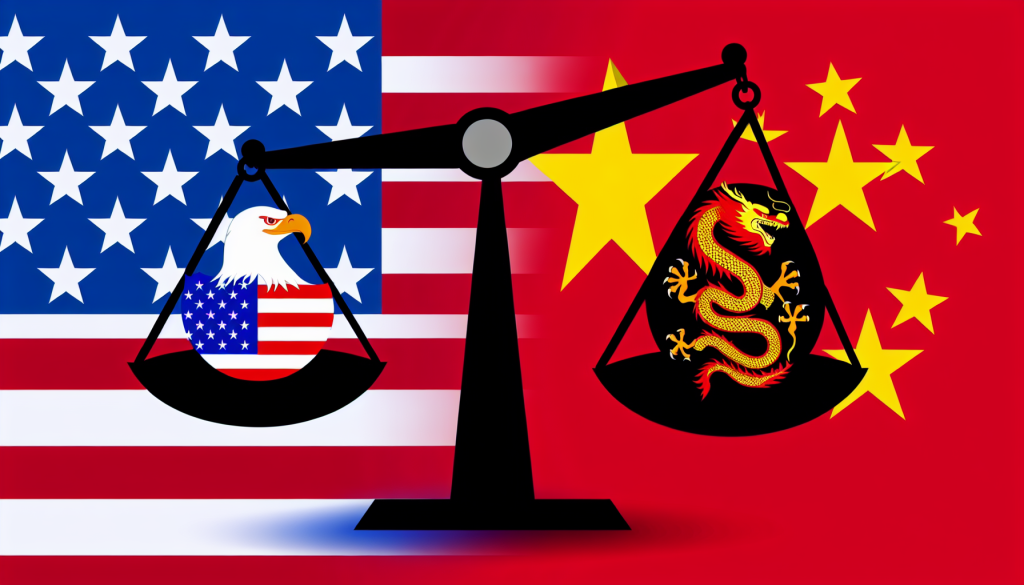The Rise of China: A New Global Challenge
On September 3, 2025, the world witnessed a significant display of military might in Tiananmen Square, Beijing. The occasion marked the 80th anniversary of the end of World War II, yet its implications transcended historical commemoration. This military parade was not merely a celebration; it was a bold statement of China’s growing assertiveness on the global stage, particularly aimed at challenging the long-standing hegemony of the United States.
Historical Context
World War II saw China as part of the Allied forces alongside the United States, the Soviet Union, the United Kingdom, and France. However, the geopolitical landscape has shifted dramatically since then. Today, while Japan allies with the US, China stands as a formidable rival, exhibiting an assertiveness that signals a significant change in global power dynamics.
Military Showcase
During the recent parade, China unveiled sophisticated military hardware for the first time, showcasing capabilities that intimidate and inspire awe. This display included advanced weaponry capable of striking targets globally, a clear message reaffirming China’s military prowess. Observers noted that the show asserted China’s readiness to strike effectively from land, sea, and air, reflecting a comprehensive military strategy.
The End of the Cold War and the Emergence of New Powers
Following the collapse of the Soviet Union, the United States emerged as the sole superpower, maintaining a dominant position for over three decades. Russia, after a prolonged period of struggle under Vladimir Putin, has attempted to reclaim its place as a significant global player, but it has not yet returned to superpower status. Despite its military resurgence, Russia’s influence remains limited in comparison to that of the US.
In contrast, China has strategically positioned itself as a counterweight to US dominance. The recent military parade, attended by leaders from approximately 25 countries, including high-profile figures like Russian President Vladimir Putin and North Korean leader Kim Jong Un, symbolized a collective assertion against US unilateralism.
Global Interdependence
The United States remains heavily dependent on China for imports, with a trade deficit of approximately $295 billion recorded in 2024. This intertwined economic relationship complicates the US’s stance against China, as trade dynamics influence diplomatic relations. While the US outpaces China economically and militarily, its reliance on Chinese goods underscores the need for careful engagement.
Domestic Considerations for China
China’s military show was not just a display of power, but also a necessary act of domestic reassurance amid an economic slowdown. With significant unemployment and a dip in growth rates, the Chinese government seeks to bolster national pride and unity through such grand displays. The impact of external pressures, including tariffs imposed during the Trump administration, further exacerbates these challenges.
Despite its military capabilities, China remains in a developmental phase when compared to the US. While it has asserted its presence globally, many aspects such as individual freedoms and social indices lag far behind Western standards.
Regional Aspirations
As China strives to emerge as a dominant regional power in the Asia-Pacific, its ambitions toward Taiwan pose additional challenges. These well-known intentions create a complex situation, where any aggressive move toward Taiwan would likely prompt a significant response from the US, highlighting the intricacies of military positioning in this high-stakes environment.
The Future of Global Relations
The recent military parade in China is a clear indication of its desire to be seen as an emerging superpower, with the backing of a coalition of nations. Countries like Pakistan, Iran, and North Korea are aligning themselves with China, potentially signaling a shift in global power relations.
As China continues to assert its ambitions, the United States must navigate this evolving landscape carefully, balancing the benefits of economic interdependence against the realities of a changing world order. The military show and its implications serve as a stark reminder that the era of unquestioned US dominance may be giving way to a more multipolar world, where the influence of nations like China cannot be ignored.

